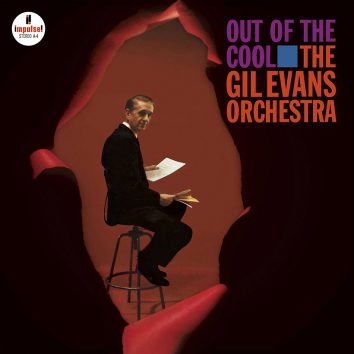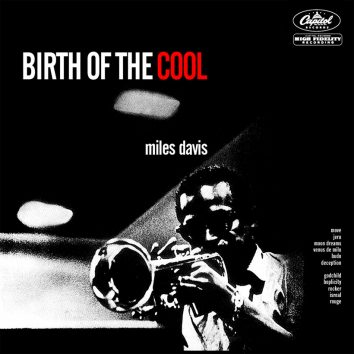‘Dulce Beat’: Belanova’s 2000s Synthpop Masterpiece
The album redefined Mexican pop with shimmering synths, confessional lyrics, and irresistible hooks.

During the 2000s, the Mexican music scene became a game of niches, with each genre growing their respective crowds with few chances of crossing over. However, one electronic trio managed to find their fans within many different camps, becoming one of the definitive acts of the era, and almost 20 years later, made one of the most unlikely comebacks in Mexican music history. Belanova released Dulce Beat, their second album, in 2005 — a synthpop album influenced as much by what we now call “indie sleaze” as well as predicting mainstream music that would dominate the late-’00s — Kesha, Lady Gaga, and Katy Perry, to name a few. Their singles like “Por Ti” and “Rosa Pastel” became chart hits as well as cult favorites. While the band couldn’t transcend their momentum, in the early 2020s, social media helped a new generation discover Belanova, sparking appreciation for a band that, as much as it represented its own time period, proved to be timeless.
Click to load video
Belanova was formed in the year 2000 by Denisse Guerrero, Ricardo Arreola, and Edgar Huerta in the Mexican city of Guadalajara. Arreola had been a member of funk rockers La Dosis during the Mexican rock heyday, while Guerrero and Huerta were younger and less experienced. Their passion for electronic music led them to form Belanova, signing to an indie label, Virus, and releasing their debut album, Cocktail. After signing with Universal, this led to their single “Tus Ojos” becoming a big hit in Mexico.
The music scene and Cachorro López
Latin pop music was in a transitional period back then; the biggest ’90s pop stars were still ruling the charts while the next generation was yet to make their mark. On the other hand, the Mexican rock scene, which had become a huge market, had dwindled down to producing just a few major new acts. Electronic music — while popular in its own niche — had yet to become a major commercial force. There were few artists like Belanova back then, and they seized their uniqueness to make their mark.
In 2005, they released Dulce Beat. The album was produced by Cachorro López, a veteran who helped break rock en español into the mainstream by producing powerful yet melodic albums by Miguel Mateos, Caifanes, and even pop stars like Stephanie Salas and Diego Torres. López once described himself thusly: “I’m not an artist, I’m like a song craftsman.” This quality helped him land some of his biggest hits as a producer, helping Julieta Venegas and Natalia Lafourcade zero in on their respective uniqueness as singers and songwriters and harnessing that into a chart-topping goldmine, as heard on heartfelt and melodic albums — if harmonically different — like Venegas’s Sí and Lafourcade’s Hasta La Raíz.
The album
Dulce Beat similarly breaks away from the group’s past, embracing a wide variety of sounds, focusing on punchy rhythms and the most memorable melodies in concise songs that hardly go beyond the 3:30 mark. Lyrically, Guerrero goes the confessional route, talking about love and heartbreak with a melancholic bent that gives most of the songs on Dulce Beat pathos, even during its brightest moments.
Click to load video
The album opens with “Niño,” a song that demonstrates what electroclash would have sounded like if it ever crossed paths with emo — hurried beats and bright synth lines are the springboard for earnest feelings and big choruses from Guerrero’s high voice register. “Rosa Pastel” is defined by its glam rock stomp and bright choruses with lyrics like “And everything ended / there’s nothing left / we’ll be two strangers / I’ll forget you / you’ll forget me / so long,” perhaps making it their defining moment as artists. “Mírame” embraces a traditional bossa nova sound, with gentle plucked guitar chords and exquisite percussion, with occasional synth lines to give the song a contemporary texture. “Miedo” seems to orbit the same galaxy as bands like Metric, with a guitar riff commanding the track around Guerrero’s sassy delivery swinging around the groove. “Escena Final” seems to apply the Depeche Mode formula into a different approach, with dark synth chords around the verses, while keyboard lines uplift each section as they appear. “Por Ti” boasts the biggest hooks on the whole album — from intertwining melodic lines that lead into an explosive singalong. Even an obvious experiment like “Sexy” — with its over-the-top delivery and lyrics — possesses enough charm and catchiness to be enjoyable.
While Cocktail had been a success, nothing could prepare Belanova for Dulce Beat’s impact. “Por Ti,” “Me Pregunto,” “Rosa Pastel,” and “Niño” became massive radio hits, entering the Billboard charts while keeping the album there for months. It broke the band beyond Mexico, harnessing fanbases in the U.S., Argentina, Chile, and Spain, where they toured. The album was certified double platinum in Mexico.
Click to load video
It was also a smash with the critics. AllMusic’s Jason Birchmeier wrote: “There’s no single quality that makes these songs so magnetic; rather, it’s a combination of Guerrero’s pixieish voice as well as her baby-doll swagger, Huerta’s swirling layers of soft-hued electronics, and Arreola’s driving basslines, not to mention the Midas touch of Cachorro López.” Rolling Stone México’s Alex Carranco praised the album, saying that “it was a challenge for Belanova to surpass their past with this album where, fortunately, they didn’t shed their unique style; rather, there was an upgrade in the production department, with arrangements that engage our attention in each song.”
Belanova released their follow-up in 2007. Fantasía Pop saw them team up again with Cachorro López. It paid off with one of their biggest hits, “Baila Mi Corazón.” While the album had a stellar opening week — reaching No. 1 in Mexico and gold status shortly after, as well as winning them a Latin Grammy for Best Pop Album by a Duo or Group With Vocals in 2008 — it didn’t quite match its predecessor’s success. Steadily, the band’s sales declined even as they kept working until 2018, when they went on hiatus.
Things changed in 2023, however, when social media helped them find a new generation of fans. “Rosa Pastel” became a trending song on TikTok, with young fans making videos using “Rosa Pastel” to express disappointment with their love and even professional life. Soon it went viral beyond the web, with speculations of a return of Belanova to the stage, which finally happened in 2024 with appearances at festivals in Los Angeles and Mexico City.
Belanova managed to do something few artists can: define their era and make timeless music. Perhaps their biggest contribution to Latine music is that, armed with songs as catchy as the ones found on Dulce Beat, one can go supernova multiple times.










